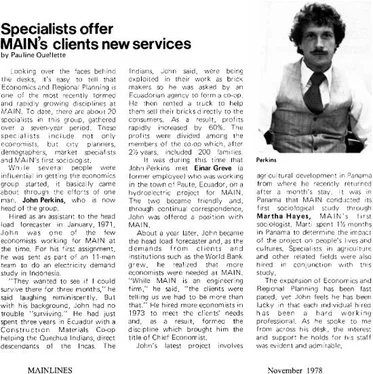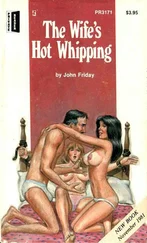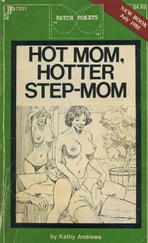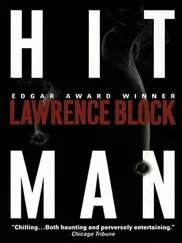John Perkins - Confessions of an Economic Hit Man
Здесь есть возможность читать онлайн «John Perkins - Confessions of an Economic Hit Man» весь текст электронной книги совершенно бесплатно (целиком полную версию без сокращений). В некоторых случаях можно слушать аудио, скачать через торрент в формате fb2 и присутствует краткое содержание. Жанр: economics, на английском языке. Описание произведения, (предисловие) а так же отзывы посетителей доступны на портале библиотеки ЛибКат.
- Название:Confessions of an Economic Hit Man
- Автор:
- Жанр:
- Год:неизвестен
- ISBN:нет данных
- Рейтинг книги:4 / 5. Голосов: 1
-
Избранное:Добавить в избранное
- Отзывы:
-
Ваша оценка:
- 80
- 1
- 2
- 3
- 4
- 5
Confessions of an Economic Hit Man: краткое содержание, описание и аннотация
Предлагаем к чтению аннотацию, описание, краткое содержание или предисловие (зависит от того, что написал сам автор книги «Confessions of an Economic Hit Man»). Если вы не нашли необходимую информацию о книге — напишите в комментариях, мы постараемся отыскать её.
Confessions of an Economic Hit Man — читать онлайн бесплатно полную книгу (весь текст) целиком
Ниже представлен текст книги, разбитый по страницам. Система сохранения места последней прочитанной страницы, позволяет с удобством читать онлайн бесплатно книгу «Confessions of an Economic Hit Man», без необходимости каждый раз заново искать на чём Вы остановились. Поставьте закладку, и сможете в любой момент перейти на страницу, на которой закончили чтение.
Интервал:
Закладка:
2. U.S. Department of Agriculture findings, reported by the Food Research and Action Center (FRAC), http://www.frac.org (accessed December 27, 2003).
3. United Nations. Human Development Report . (New York: United Nations, 1999).
4. “In 1998, the United Nations Development Program estimated that it would cost an additional $9 billion (above current expenditures) to provide clean water and sanitation for everyone on earth. It would cost an additional $12 billion, they said, to cover reproductive health services for all women worldwide. Another $13 billion would be enough not only to give every person on earth enough food to eat but also basic health care. An additional $6 billion could provide basic education for all… Combined they add up to $40 billion.”—John Robbins, author of Diet for a New America and The Food Revolution , http://www.foodrevolution.org (accessed December 27, 2003).
Prologue
1. Gina Chavez et al., Tarimiat — Firmes en Nuestro Territorio: FIPSE vs. ARCO , eds. Mario Melo and Juana Sotomayor (Quito, Ecuador: CDES and CONAIE, 2002).
2. Sandy Tolan, “Ecuador: Lost Promises,” National Public Radio, Morning Edition , July 9, 2003, http://www.npr.org/programs/morning/features/2003/jul/latinoil (accessed July 9, 2003).
3. Juan Forero, “Seeking Balance: Growth vs. Culture in the Amazon,” New York Times , December 10, 2003.
4. Abby Ellin, “Suit Says ChevronTexaco Dumped Poisons in Ecuador,” New York Times , May 8, 2003.
5. Chris Jochnick, “Perilous Prosperity,” New Internationalist , June 2001, http://www.newint.org/issue335/perilous.htm. For more extensive information, see also Pamela Martin, The Globalization of Contentious Politics: The Amazonian Indigenous Rights Movement (New York: Rutledge, 2002); Kimerling, Amazon Crude (New York: Natural Resource Defense Council, 1991); Leslie Wirpsa, trans., Upheaval in the Back Yard: Illegitimate Debts and Human Rights — The Case of Ecuador-Norway (Quito, Ecuador: Centro de Derechos Económicos y Sociales, 2002); and Gregory Palast, “Inside Corporate America,” Guardian , October 8, 2000.
6. For information about the impact of oil on national and global economies, see Michael T. Klare, Resource Wars: The New Landscape of Global Conflict (New York: Henry Holt and Company, 2001); Daniel Yergin, The Prize: The Epic Quest for Oil, Money & Power (New York: Free Press, 1993); and Daniel Yergin and Joseph Stanislaw, The Commanding Heights: The Battle for the World Economy (New York: Simon & Schuster, 2001).
7. James S. Henry, “Where the Money Went,” Across the Board , March/April 2004, pp 42–45. For more information, see Henry’s book The Blood Bankers: Tales from the Global Underground Economy (New York: Four Walls Eight Windows, 2003).
8. Gina Chavez et al., Tarimiat — Firmes en Nuestro Territorio: FIPSE vs. ARCO , eds. Mario Melo and Juana Sotomayor (Quito, Ecuador: CDES and CONAIE, 2002); Petróleo, Ambiente y Derechos en la Amazonía Centro Sur , Editión Víctor López A, Centro de Derechos Económicos y Sociales, OPIP, IACYT-A (under the auspices of Oxfam America) (Quito, Ecuador: Sergrafic, 2002).
9. Sandy Tolan, “Ecuador: Lost Promises,” National Public Radio, Morning Edition , July 9, 2003, http://www.npr.org/programs/morning/features/2003/jul/latinoil (accessed July 9, 2003).
10. For more on the jackals and other types of hit men, see P. W. Singer, Corporate Warriors: The Rise of the Privatized Military Industry (Ithaca, NY and London: Cornell University Press, 2003); James R. Davis, Fortune’s Warriors: Private Armies and the New World Order (Vancouver and Toronto: Douglas & McIntyre, 2000); Felix I. Rodriguez and John Weisman, Shadow Warrior: The CIA Hero of 100 Unknown Battles (New York: Simon and Schuster, 1989).
Chapter 2. “In for Life”
1. For a detailed account of this fateful operation, see Stephen Kinzer, All the Shah’s Men: An American Coup and the Roots of Middle East Terror (Hoboken, NJ: John Wiley & Sons, Inc., 2003).
2. Jane Mayer, “Contract Sport: What Did the Vice-President Do for Halliburton?”, New Yorker , February 16 & 23, 2004, p 83.
Chapter 3. Indonesia: Lessons for an EHM
1. For more on Indonesia and its history, see Jean Gelman Taylor, Indonesia: Peoples and Histories (New Haven and London: Yale University Press, 2003); and Theodore Friend, Indonesian Destinies (Cambridge MA and London: The Belknap Press of Harvard University, 2003).
Chapter 6. My Role as Inquisitor
1. Theodore Friend, Indonesian Destinies (Cambridge MA and London: The Belknap Press of Harvard University, 2003), p 5.
Chapter 10. Panama’s President and Hero
1. See David McCullough, The Path Between the Seas: The Creation of the Panama Canal 1870–1914 (New York: Simon and Schuster, 1999); William Friar, Portrait of the Panama Canal: From Construction to the Twenty-First Century (New York: Graphic Arts Publishing Company, 1999); Graham Greene, Conversations with the General (New York: Pocket Books, 1984).
2. See “Zapata Petroleum Corp.”, Fortune , April 1958, p 248; Darwin Payne, Initiative in Energy: Dresser Industries, Inc. 1880–1978 (New York: Simon and Schuster, 1979); Steve Pizzo et al., Inside Job: The Looting of America’s Savings and Loans (New York: McGraw Hill, 1989); Gary Webb, Dark Alliance: The CIA, The Contras, and the Crack Cocaine Explosion (New York: Seven Stories Press, 1999); Gerard Colby and Charlotte Dennet, Thy Will Be Done, The Conquest of the Amazon: Nelson Rockefeller and Evangelism in the Age of Oil (New York: HarperCollins, 1995).
3. Manuel Noriega with Peter Eisner, The Memoirs of Manuel Noriega, America’s Prisoner (New York: Random House, 1997); Omar Torrijos Herrera, Ideario (Editorial Universitaria Centroamericano, 1983); Graham Greene, Conversations with the General (New York: Pocket Books, 1984).
4. Graham Greene, Conversations with the General (New York: Pocket Books, 1984); Manuel Noriega with Peter Eisner, The Memoirs of Manuel Noriega, America’s Prisoner (New York: Random House, 1997).
5. Derrick Jensen, A Language Older than Words (New York: Context Books, 2000), pp 86–88.
6. Graham Greene, Conversations with the General (New York: Pocket Books, 1984); Manuel Noriega with Peter Eisner, The Memoirs of Manuel Noriega, America’s Prisoner (New York: Random House, 1997).
Chapter 13. Conversations with the General
1. William Shawcross: The Shah’s Last Ride: The Fate of an Ally (New York: Simon and Schuster, 1988); Stephen Kinzer, All the Shah’s Men: An American Coup and the Roots of Middle East Terror (Hoboken, NJ: John Wiley & Sons, Inc., 2003), p 45.
2. A great deal has been written about Arbenz, United Fruit, and the violent history of Guatemala; see for example (my Boston University political science professor) Howard Zinn, A People’s History of the United States (New York: Harper & Row, 1980); Diane K. Stanley, For the Record: The United Fruit Company’s Sixty-Six Years in Guatemala (Guatemala City: Centro Impresor Piedra Santa, 1994). For quick references: “The Banana Republic: The United Fruit Company,” http://www.mayaparadise.com/ufc1e.html; “CIA Involved in Guatemala Coup, 1954,” http://www.english.upenn.edu/~afilreis/50s/guatemala.html. For more on the Bush family’s involvement: “Zapata Petroleum Corp.,” Fortune , April 1958, p 248.
Читать дальшеИнтервал:
Закладка:
Похожие книги на «Confessions of an Economic Hit Man»
Представляем Вашему вниманию похожие книги на «Confessions of an Economic Hit Man» списком для выбора. Мы отобрали схожую по названию и смыслу литературу в надежде предоставить читателям больше вариантов отыскать новые, интересные, ещё непрочитанные произведения.
Обсуждение, отзывы о книге «Confessions of an Economic Hit Man» и просто собственные мнения читателей. Оставьте ваши комментарии, напишите, что Вы думаете о произведении, его смысле или главных героях. Укажите что конкретно понравилось, а что нет, и почему Вы так считаете.












